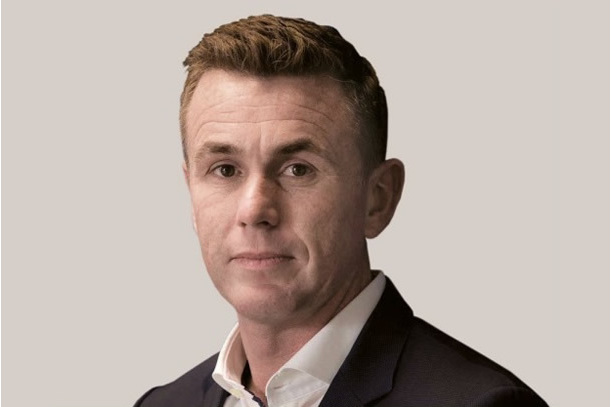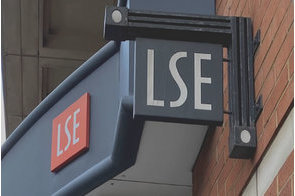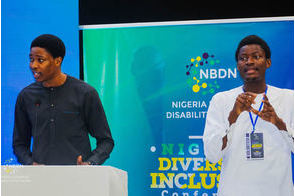Everyone’s voice is mission-critical for the future of the chemical industry

Summary
If you are not intentionally including, then you are unintentionally excluding.
Dean Curtis, Group Managing Director at LexisNexis Risk Solutions and President & CEO, ICIS, part of the data and analytics company, RELX, talks about why the chemical industry needs to work harder to embrace diversity and why this starts with inclusivity.
Q: More than 96% of all manufactured goods involve chemicals and the industry adds 2% to US GDP every year and $1.1 trillion to global GDP. The industry was founded on innovation and has a key role to play in tackling some of the most critical issues of our time: CO2 emission reduction, circular economy, plastic waste, decarbonisation, and electric vehicle production. It has huge influence and plays a key role in global trade and supply chains. But is the industry doing enough to attract new talent and promote innovation through diversity, equity, and inclusion (DEI)?
A: The business case for diversity is stronger than ever with a McKinsey report suggesting that diverse organisations outperform their competitors by 36%. Teams with a breadth of backgrounds, experiences and beliefs also have the best ideas and make them happen – innovation. One of the issues that has faced the chemical industry for some time, like many industries, is that a lot of expertise comes from mature, white males. This presents two fundamental problems. Firstly, the industry needs to attract new talent to replace ageing workforces and experts that are retiring and leaving the industry. Indeed, Deloitte estimates that some 106,000 jobs in the industry could remain unfilled between 2021 and 2030. Secondly, when an industry is performing well it can experience inertia in the hope that success will continue. The world we have lived in is now different to the one we wish and need to create. Therefore, to promote this innovation, the industry needs to attract more diverse talent to solve the issues the world is tackling.
Research has shown that DEI is a top priority for 75% of chemical companies with the rest including it within their top 10. Yet, there is still much-needed work to be done to improve current diversity in the chemical industry. Of course, diversity is not just about gender and ethnicity. Sexuality, disability, household income and backgrounds, and many other segments, all contribute to the creation of a diverse workforce and a breadth of experiences, beliefs and thinking that create the best outcomes.
Q: So how can the chemical industry attract and retain talent, especially from diverse groups?
A: Many organisations have worked closely with schools on educational programmes which promote science, technology, engineering, and mathematics (STEM) opportunities, to attract more diverse talent for the future. New technologies relating to digitalisation, innovation and sustainability offer excellent opportunities to bring new skills into the organisations. It is, however, important to note that sustainable diversity is not possible if the question of inclusivity is not tackled first in order for diversity to thrive.
Q: Why inclusivity comes before diversity?
A: Diversity is not about achieving targets. It is about a fundamental change in culture to accept and embrace people’s differences so all talent can contribute and are able to bring their best selves to the table. After all, it is the differences that bring new ideas and innovation, and everyone’s voice is mission critical. Once an inclusive culture is in place, a company becomes more attractive, and acquired talent is much less likely to leave as they contribute more, are empowered, and have the autonomy to make a difference.
At a recent panel discussion hosted by Leila McKenzie, Founder and CEO of Dial Global and the McKenzie-Delis Charitable Foundation, I spoke with other chemical industry leaders, who are vanguards in this field, about the challenges and opportunities their companies are focusing on, as well as their personal experiences.
Bob Patel, CEO of W.R. Grace, said at the event, “…we need everybody. It's not just those who would identify themselves as being diverse, but we need everybody to make the company successful and for this industry to have its positive impact on the world.”
An inclusive culture is built on trust, understanding and collaboration. It is an environment where every individual, from any background, can bring their full selves to work and feel psychologically safe and everyone goes out of their way to understand others. It means they feel safe to speak up, offer ideas, and ask questions – elements that are all necessary for innovation to flourish.
During the panel discussion, Jim Fitterling, Chairman and Chief Executive of Dow, also commented: “You need to have a strategy around diversity, equity and inclusion and actually make it part of your business strategy.”
What got us here, won’t get us there.
As the chemical industry faces new and urgent challenges in areas such as plastic waste, emissions, and supply chain, the need for diversity is greater than ever. It has been proven that diverse teams are more likely to succeed when faced with complex problems. The next generation of engineers presents an opportunity for positive change and to reignite the levels of innovation that grew the sector to where it is today in order to address these significant global issues. But this will not come without inclusion and, to create inclusive cultures, the industry must be bolder and braver in its approach.
‘We need to move the needle and perception of the chemical industry when it comes to diversity – which is why diversity at management and board level is so important’. Jim Fitterling, explained, “…culture starts at the top, and I think that's the responsibility of the leaders to set the tone for the rest of the organisation.”
At ICIS, hiring for diversity has led us to question exactly what we need for a role. Historically, the requirement for a degree qualification was almost standard. Of course, some roles need technical competence, and we need to make sure a candidate has the right qualities to be successful, but other characteristics, traits and behaviours can be equally important. Passion, resilience, integrity, hard work and determination may bring more of what is needed to a team above and beyond technical competence.
At ICIS we have a very age-diverse workforce, a blend which is an asset to the company. Every manager has been through inclusion training and has DEI targets, we hire from diverse talent pools, and have changed job descriptions to align with our vision and belief that diversity brings true strength. Programs are also in place to accelerate both female and ethnically diverse talent and we have begun a program to provide routes for socio-economic under privileged talent to enter the business and provide an opportunity to people who are ambitious, resilient and have made some tough choices, but may not have historically got the opportunity afforded to others. After all, the challenges we overcome make us who we are and, for those who have struggled, that struggle becomes a differentiator, a superpower.
We still have much to do, especially in relation to ethnic diversity at the top of the business, but we are not hiring to just meet targets. Rather, we are investing in developing ethnically diverse talent across the organisation with the aim to create a sustainable, diverse team. We want fairness and equality and to create the world in our organisation we wish to see outside of it. To do this, our culture must be right for both performance and inclusion so all talent can thrive.
Summary
Diversity is not about altering a person or making them feel they need to change to fit in. It is about embracing their differences and using different voices to better solve the challenges which face the industry. Data, digitalisation, innovation, talent, and culture are all paramount to defining the future of the chemical markets, and indeed the world in which we live. There is no easy answer and integrating diversity as the norm in the industry will take time and it needs us all to be continually working at this, always. If you are not intentionally including, then you are unintentionally excluding. Ultimately, we need to make diversity sustainable, and this can only happen if we lead with inclusivity.
Related
-
LSE launches £50 million global accelerator for "social unicorns"
100x Impact Accelerator forms a new ecosystem of finance, talent, and access that enables scale-up social enterprises and ...
-
Access Bank demonstrates commitment to support people with disabilities
People with disabilities need to be supported to facilitate their full integration into society.
-
Towards economic and social inclusion of persons with disabilities
In line with its being a socially responsible institution, Access Bank PLC has committed to empowering persons living with ...









